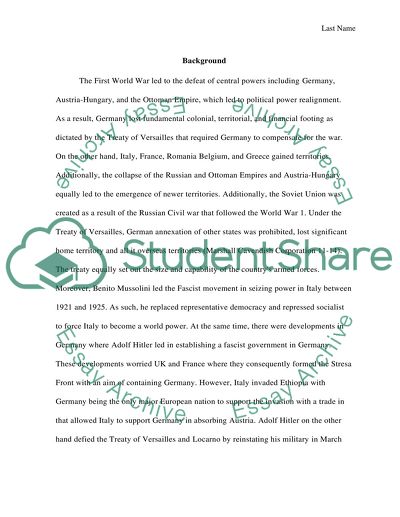Cite this document
(“World War II Essay Example | Topics and Well Written Essays - 2500 words”, n.d.)
Retrieved de https://studentshare.org/history/1399008-world-war-ii
Retrieved de https://studentshare.org/history/1399008-world-war-ii
(World War II Essay Example | Topics and Well Written Essays - 2500 Words)
https://studentshare.org/history/1399008-world-war-ii.
https://studentshare.org/history/1399008-world-war-ii.
“World War II Essay Example | Topics and Well Written Essays - 2500 Words”, n.d. https://studentshare.org/history/1399008-world-war-ii.


